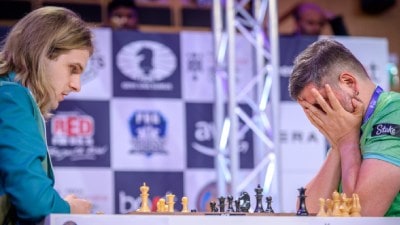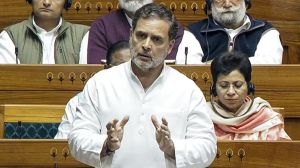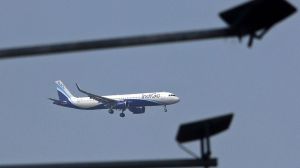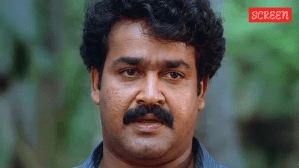Why assassination of Russian Ambassador Andrey Karlov reminds many of how World War I started
The assassination of Archduke Franz Ferdinand of Austria Hungary in June 1914 sparked off the First World War.
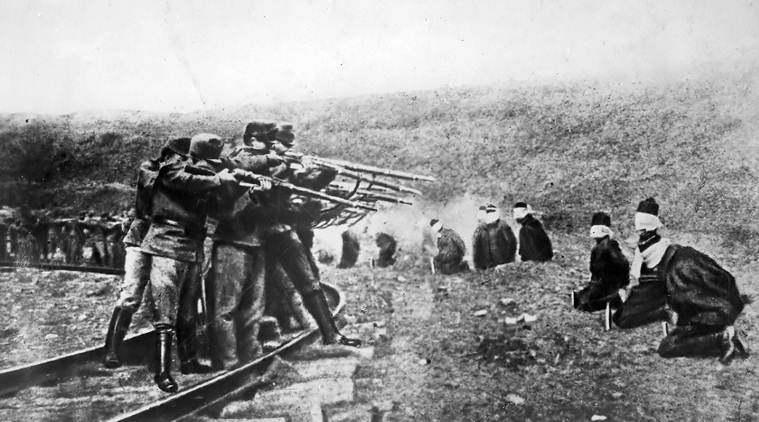 The gunning down of the Russian ambassador is being widely compared to the assassination of Archduke Franz Ferdinand in June 1914. This event sparked off the First World War. (Wikimedia Commons)
The gunning down of the Russian ambassador is being widely compared to the assassination of Archduke Franz Ferdinand in June 1914. This event sparked off the First World War. (Wikimedia Commons)
It’s been more than a hundred years since Europe was rocked by the bloodshed of the First World War. More than a century later, the political situation in Europe has been quite tense of late, particularly over the situation in the Middle East. In the midst of the ongoing crisis, the murder of Andrey Karlov, the Russian Ambassador to Turkey, has sent down shivers across the world, reminding people of the last time a solitary case of assassination split the European continent into two halves and ushered in the devastation of the First World War.
The gunning down of the Russian ambassador is being widely compared to the assassination of Archduke Franz Ferdinand in June 1914. This event sparked off the First World War. Though socio-political situations are very different in the two cases, there are reasons behind the comparison that have to do with the timing and the way the murder was carried out in Ankara on Monday.
Assassination of Archduke Franz Ferdinand and WWI
Born in Graz, Austria, Archduke Franz Ferdinand was the heir to the Austro-Hungarian empire. European nation states at this point in time were involved in aggressive imperialist conquests and were in tough competition with each other over their imperial strength. Austria-Hungary was not far behind and by 1914, it had covered large parts of Eastern Europe.
When Archduke Ferdinand was murdered, he was in Bosnia-Herzegovinia, which had been made a part of the Austro-Hungarian empire in 1908. The consolidation of Bosnia-Herzegovinia was seen as threatening by the western powers on the one hand and by the Greater-Serbia, who wanted the region to be part of a Serbia led, pan-Slavic empire.
 When Archduke Ferdinand was murdered, he was in Bosnia-Herzegovinia, which had been made a part of the Austro-Hungarian empire in 1908. (Wikimedia Commons)
When Archduke Ferdinand was murdered, he was in Bosnia-Herzegovinia, which had been made a part of the Austro-Hungarian empire in 1908. (Wikimedia Commons)
Archduke Ferdinand was on a visit to Bosnia-Herzegovinia, when a Serbian terrorist organisation, “the Black Hand”, decided to attack him with the resolve to stall his plans of extending the Austro-Hungarian empire. Archduke Ferdinand was assassinated by 19-year-old Gavrilo Princep.
The assassination did not attract much attention at the time that it occurred and was considered an isolated incident resulting from strained diplomatic relations. However, a month later, Austria-Hungary, in collaboration with German forces, declared war on Serbia. It was just a matter of time that Great Britain, France, Russia and later the United States got involved in the conflict that lasted four years, claiming the lives of more than nine million people.
Murder of Russian ambassador Andrey Karlov
The murder of Andrey Karlov in Ankara comes at time when relations between Russia and Turkey have been consistently dwindling. Matters have been worsening since the time a Russian war plane was shot down by two Turkish F-16s in November 2015. Following the attack, Russia imposed a number of economic sanctions on Turkey.
 The murder of Andrey Karlov in Ankara comes at time when relations between Russia and Turkey have been consistently dwindling. (REUTERS)
The murder of Andrey Karlov in Ankara comes at time when relations between Russia and Turkey have been consistently dwindling. (REUTERS)
Relations with Turkey had also been deteriorating since Russia sees the eastward extension of the NATO as a significant threat and Turkey is a prime member of the North Atlantic alliance. However, the issue that has been causing strongest tensions between the countries recently is the handling of Syria.
While Russia decided to collaborate with the Bashar Al-Assad-led government in Syria to clamp down upon rebel forces in the country, Turkey has been consistently opposing Russian involvement in the Middle Eastern territory so close to its borders. Backing rebels in Syria, Turkish forces have evacuated fighters and civilians from Syria and also offered to house them in camps along Turkish borders.
 With Aleppo burning under the combined siege of its government, army and Russian forces, the assassination of Karlov is being seen as an armed uprising under Turkey. (SANA via AP)
With Aleppo burning under the combined siege of its government, army and Russian forces, the assassination of Karlov is being seen as an armed uprising under Turkey. (SANA via AP)
With Aleppo burning under the combined siege of its government, army and Russian forces, the assassination of Karlov is being seen as an armed uprising under Turkey. The man who shot Karlov reportedly shouted out “don’t forget Aleppo” before gunning him down.
The nature of the murder and the circumstances in which they occurred have strong resemblances with what triggered the First World War. However, one also needs to realise that the global community has moved several stages ahead of socio-political conditions in the early twentieth century. With the occurrences of two world wars, decolonisation and the growth of several human right organisations, it is very difficult for the situation to flare up like it did a century ago.
- 01
- 02
- 03
- 04
- 05


